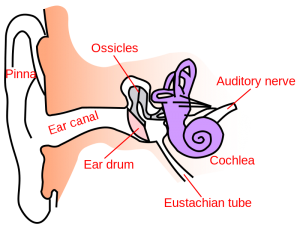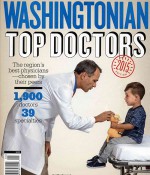Types of Hearing Loss
Red Flags: Signs of Hearing Loss
The only way to determine the presence or extent of hearing loss is to have a hearing test administered by an audiologist. Signs of hearing loss that might indicate a hearing evaluation is recommended include:
The individual experiencing hearing loss frequently is not aware of their own hearing deficits. Other people’s family members, coworkers, or friends are often the first to appreciate one’s hearing loss. Ironically, the individual with hearing loss is frequently the last person to realize and appreciate their own hearing loss.
Schedule an Appointment Today
How do we hear?
We hear by having sound waves funneled into the ear canal. The pinna, the external appendage which leads to the ear canal, serves to funnel sound into the ear canal. The sound waves then make the tympanic membrane (ear drum) vibrate. The vibrations are transmitted through the middle ear through three small middle ear auditory bones called ossicles: the malleus, incus and stapes. Each of these small bones are connected to each other and facilitate transmission of sound vibrations. The third bone, the stapes, vibrates in an oval window which connects to the hearing organ, the cochlea. These sound vibrations are then converted into an electrical impulse in the cochlea. Once converted into a nerve impulse, the signal travels to the brain. All of these functions occur in a very quick and seamless manner.

Middle ear: ear drum and 3 auditory bones (ossicles)
Inner ear: cochlea- hearing organ and semicircular canals-balance organ
Types of hearing loss

Sensorineural hearing loss (SNHL)
Sensorineural hearing loss (SNHL) occurs due to problems involving the cochlea of the inner ear. This type of hearing loss can be caused by a number of factors including aging, genetics, illness, injury, noise exposure and medications. It typically cannot be reversed by medical or surgical intervention.
The most common form of SNHL is presbycusis, (prez-bi-kyoo-sis) age-related hearing loss. Most commonly, presbycusis arises from changes in the inner ear as a result of the aging process. Genetics can play a significant role in determining if one is at risk of developing presbycusis at an early age. Another common form of SNHL is from excessive noise exposure. This form of hearing loss cannot be reversed, but can be improved upon with hearing aids.

Conductive hearing loss (CHL)
Conductive hearing loss (CHL) occurs due to problems involving the outer and middle ear. In this form of hearing loss, the sound waves do not conduct adequately through the outer and middle ear mechanism. A conductive hearing loss is theoretically reversible with medical or surgical intervention. Examples of problems causing conductive hearing losses include: wax impaction of the outer ear. A hole in the tympanic membrane or ear drum. Fluid or infection of the middle ear, common with childhood ear infections. A problem with the auditory bones preventing the proper conduction of sound to the cochlea. Each of these problems prevents the normal transmission and conduction of sound to the cochlea.






